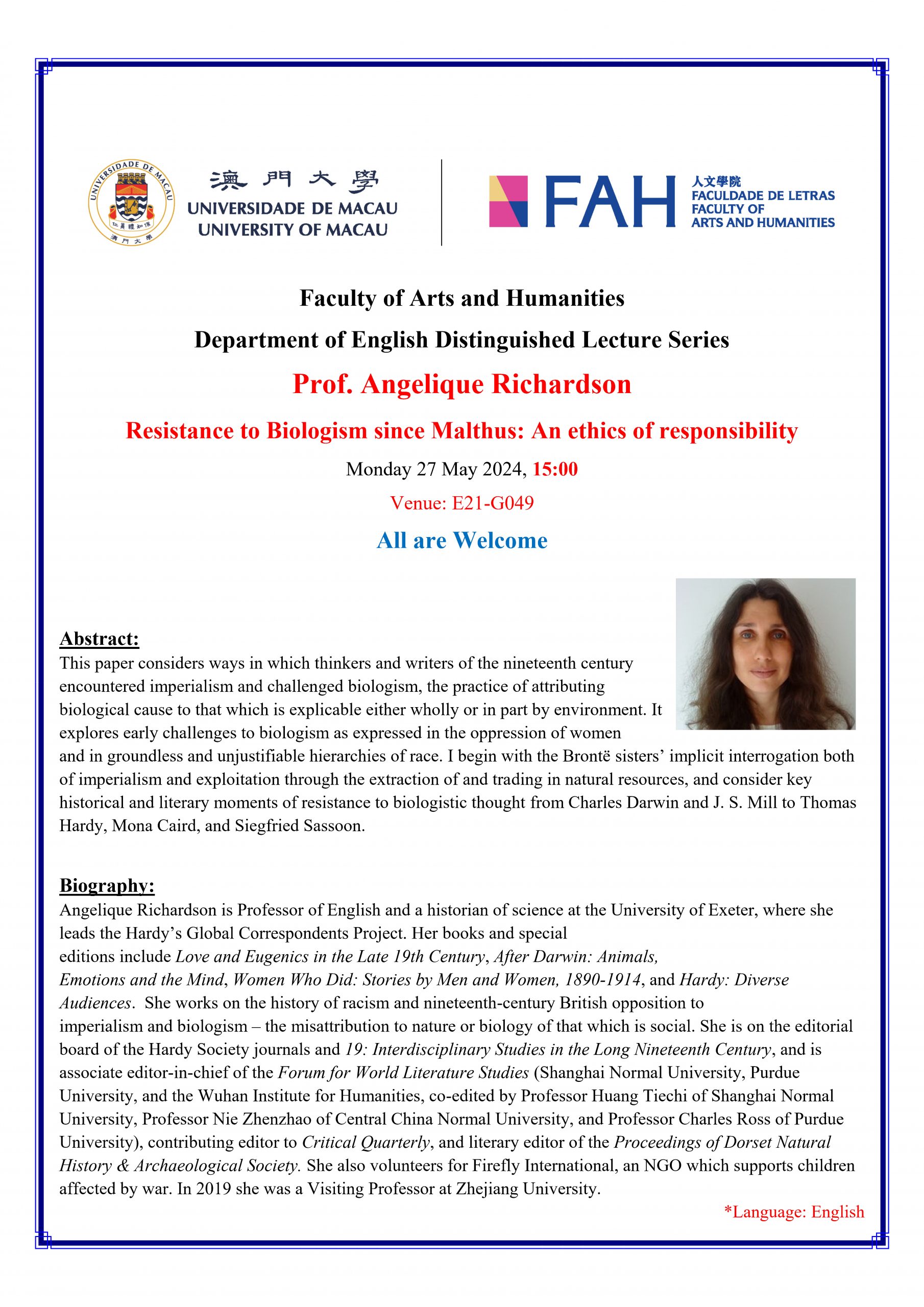

FAH-DENG Guest Lecture: “Resistance to Biologism since Malthus: An ethics of responsibility”
2024-05-27 @ 3:00 pm ~ 5:00 pm
Abstract:
This paper considers ways in which thinkers and writers of the nineteenth century encountered imperialism and challenged biologism, the practice of attributing biological cause to that which is explicable either wholly or in part by environment. It explores early challenges to biologism as expressed in the oppression of women and in groundless and unjustifiable hierarchies of race. I begin with the Brontë sisters’ implicit interrogation both of imperialism and exploitation through the extraction of and trading in natural resources, and consider key historical and literary moments of resistance to biologistic thought from Charles Darwin and J. S. Mill to Thomas Hardy, Mona Caird, and Siegfried Sassoon.
Biography:
Angelique Richardson is Professor of English and a historian of science at the University of Exeter, where she leads the Hardy’s Global Correspondents Project. Her books and special editions include Love and Eugenics in the Late 19th Century, After Darwin: Animals, Emotions and the Mind, Women Who Did: Stories by Men and Women, 1890-1914, and Hardy: Diverse Audiences. She works on the history of racism and nineteenth-century British opposition to imperialism and biologism – the misattribution to nature or biology of that which is social. She is on the editorial board of the Hardy Society journals and 19: Interdisciplinary Studies in the Long Nineteenth Century, and is associate editor-in-chief of the Forum for World Literature Studies (Shanghai Normal University, Purdue University, and the Wuhan Institute for Humanities, co-edited by Professor Huang Tiechi of Shanghai Normal University, Professor Nie Zhenzhao of Central China Normal University, and Professor Charles Ross of Purdue University), contributing editor to Critical Quarterly, and literary editor of the Proceedings of Dorset Natural History & Archaeological Society. She also volunteers for Firefly International, an NGO which supports children affected by war. In 2019 she was a Visiting Professor at Zhejiang University.

